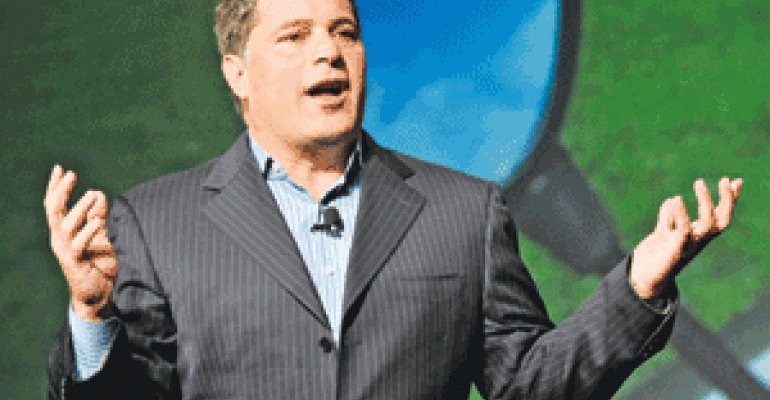DALLAS Originality is crucial in a business environment marked by disruption and nonstop competition, according to William C. Taylor, author of the best-selling book “Mavericks at Work” and founder of Fast Company magazine.
Companies not only need to look at their businesses in a new way, but they also need to “redefine competition in a me-too world,” especially given the economic meltdown, said Taylor during the Multi-Unit Foodservice Operators conference held here recently.
“Too many of us are learning the wrong lesson,” he said. “We’re becoming more conservative and averse to risk taking. We must offer a positive alternative to a demoralizing status quo.”
He pointed to several innovations created by companies during difficult times. For instance, General Motors developed the used-car market during the Depression and the iPod was introduced by Apple just after the Sept. 11, 2001, terrorist attacks.
“There are two kinds of management risk: Try something and it doesn’t work, or sinking the boat; or not trying something that would have worked, and missing the boat,” he said. “Try rocking the boat.”
To do this, businesses need to create an emotional connection with customers that cuts through the din of competitors, he said. They need to make their organizations memorable.
“The best way to predict the future is to invent it yourself,” Taylor said, pointing to several companies that have done just that, including:
— Southwest Airlines, which “reimagined” what it was like to be in the airline business, by viewing their role as the freedom business and making their mission the democratization of the skies.
Southwest offers the lowest fares, pays the highest wages and makes money despite being part of an industry that has lost $30 billion in the last five years, he said.
“They offer something meaningful in an industry that’s profoundly broken,” Taylor said.
— Lexus, which created the leading brand in luxury cars in North America, with 2.2 million cars on the road today. The company sent 500 managers to spend a week at the Four Seasons to see what makes that organization outstanding. The car dealerships, in turn, utilized upscale touches such as flowers and marble, as well as an “Answer Bar,” which helps people tap into the technology in their cars. He noted that Lexus officials realized that many ideas that are routine in one industry could be revolutionary when applied to another.
— Zappos.com, a 10-year-old shoe company with $1 billion in sales, that offers free shipping and free returns. Customers have a year to return shoes and are pleasantly surprised when the shoes, which are expected in four days, arrive in 14 hours. They also encourage customers to call them with questions at a time when most companies hide behind automated 1-800 service numbers.
Taylor pointed to Zappos’ “architecture of participation” as differentiating it from other shoe sellers. Specifically, potential employees are carefully vetted before they are hired, including being bribed to quit during initial training.
“The company understands that terms of engagement will move the needle,” Taylor said, as well as that ideas can come from anyone and anywhere.
The key is having vu jà dé, the opposite of déjà vu, Taylor said. You have to look at your business as if it’s never been seen before, he explained. “Don’t let what you know limit what you can imagine,” he said.
“It’s not good enough anymore to be pretty good at several things,” he said. “You’ve got to be the most of something. The middle of the road is the road to ruin.”
Contact Robin Lee Allen at [email protected].





